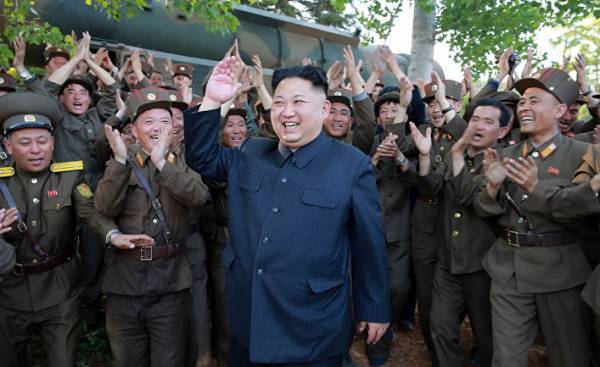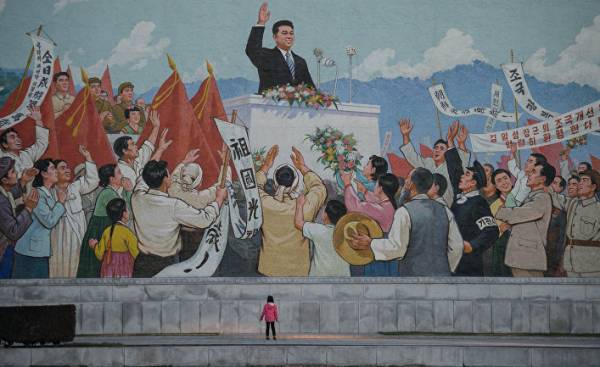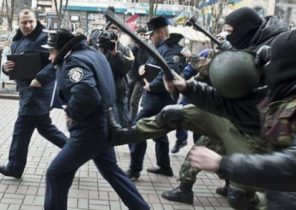
It became known that Russia and China continue to support North Korea in the area of trade. In January of this year, the UN banned the import iron ore from North Korea, however, the imports from China increased four times. In the period from January to March, the volume of export of energy resources from Russia to North Korea has doubled. This reduces the effectiveness of the sanctions, which are necessary in order to prevent nuclear and missile developments the DPRK. It seems that the US and other countries will protest more actively.
According to research firm CEIC, which are based on the statistics of the customs administration of China, in April of this year the volume Chinese imports of iron ore from Korea rose by 4.4 times compared to the same period last year, equivalent of 20.26 million dollars.
The volume of import of iron ore significant changes occur monthly, however, exceeding four times lasts since January of this year. In early April, talks were held between US President trump and President XI Jinping. The parties agreed to strengthen cooperation on the North Korean problem, however, despite this, no change occurs.
In March last year, the UN Security Council adopted a resolution banning the import of iron ore from the DPRK, but for civil purposes not related to the military domain, an exception was made. After the end of last year tightened restrictions on the import of coal which was the main export product of the DPRK, Pyongyang increased its exports of iron ore to cover the foreign currency shortage.
Chinese tax office turns a blind eye to the increase in imports under the pretext of supplies for civilian use.
The share of iron ore imports accounts for only 10% of coal supplies. It does not compensate for the lack of coal deliveries, which accounted for about half of total Chinese imports from North Korea. So in March, the total import declined by 52% compared to the same period last year, in April and 41%.
The Chinese government emphasizes that it respects the provisions of the sanctions resolution the UN, but diplomatic source said: “the Increase in imports of iron ore can not be called a violation of the resolution, but it is contrary to the provision on depriving the DPRK of foreign currency”.
In turn, according to official figures the Russian government in the period from January to March this year, when increased tension between the US and the DPRK in connection with the missile and nuclear issue and the volume of trade between Russia and the DPRK increased by 85% compared to the same period last year. Large part of the energy of 31.41 million dollars. This is more than 133%.
However, some experts believe that the volume of Russian oil exports to the DPRK are much more official data: in the year several hundred thousand tons. In may between Russia and the DPRK started to operate a ferry “Manganon” which makes regular trips. Apparently, Moscow is ready to fulfill the goal: by 2020 to increase trade between the two countries ten times.
 © AFP 2016, Ed Opelastra mosaic in Pyongyang
© AFP 2016, Ed Opelastra mosaic in Pyongyang
Russia is not even trying to hide the fact that she supports the DPRK in contrast to the United States. 2 may, during the International economic forum in St. Petersburg President Putin said: “Small countries believe that nuclear weapons are the only way to guarantee their own security, independence and sovereignty.” Thus, he supported the position of the DPRK.
On 2 may, the UN security Council adopted a new sanctions resolution approved by China and Russia. However it talks only about increasing the number of sanctions. The curtailment of oil supplies were not affected. The effect of the sanctions which are not visible in may, the DPRK for three weeks in a row launched ballistic missiles. Most likely some countries will call into question the position of Russia and China, and will demand to impose tougher sanctions.
The property trump owns the information about the form in which Russia and China have provided assistance to the DPRK. Washington is beginning to show more and more dissatisfaction. On 1 may, the Ministry of Finance of the USA included in the sanctions list, some Russian companies, which had to do with oil supplies in the DPRK. During his visit to Beijing in late may, acting assistant Secretary of state Susan Thornton (Susan Thornton), told reporters: “China understands that the time is not very much.” She demanded that China took a more active stance.







